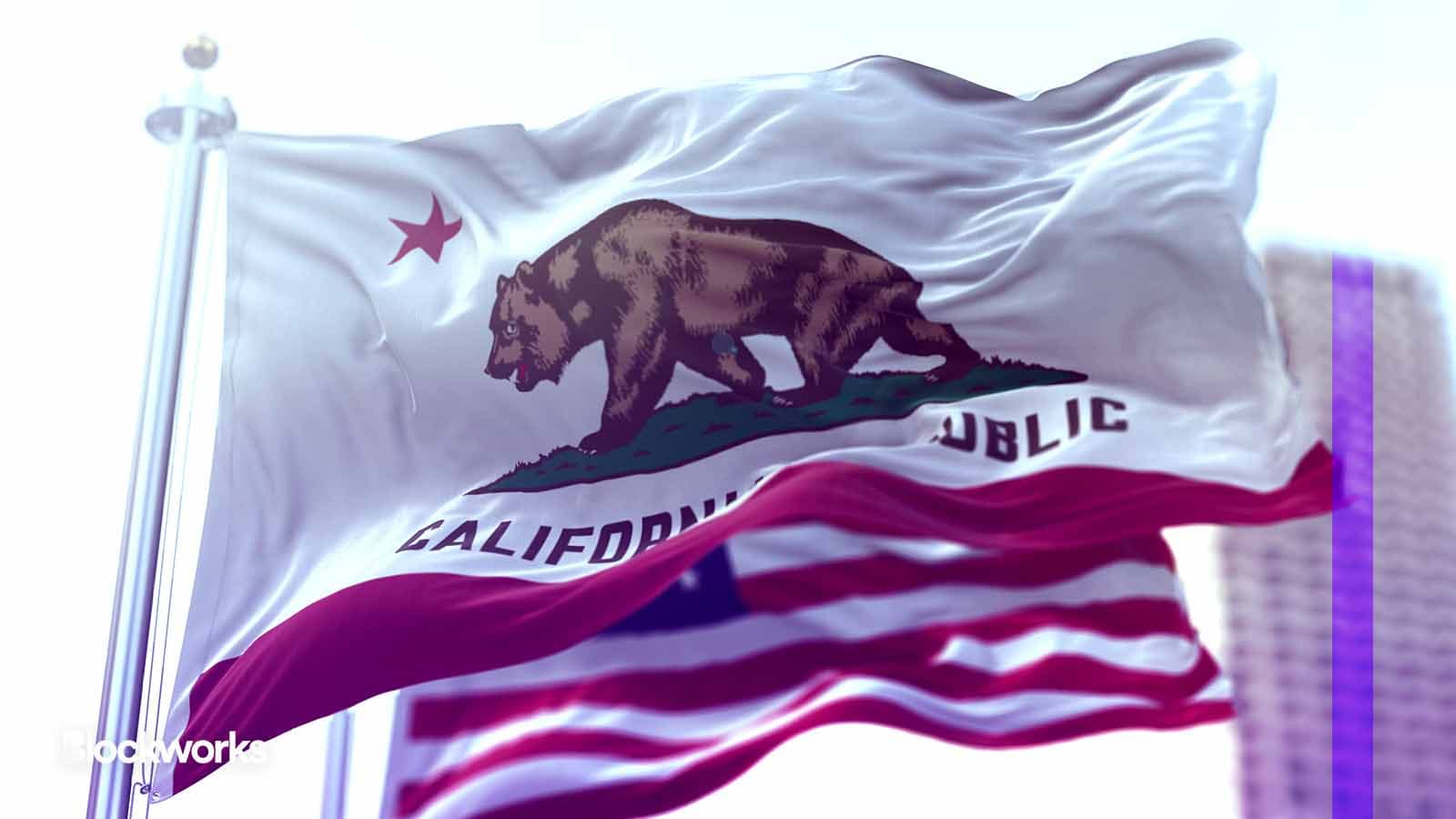California DAO Bill Would Fix Existing Laws’ ‘Fatal Flaws,’ a16z Exec Says
New proposal “a significant improvement” over other state laws that essentially define DAOs as LLCs, a16z crypto’s General Counsel Miles Jennings tells Blockworks

rarrarorro/Shutterstock modified by Blockworks
A California state representative has floated a law that seeks to attract DAOs by fixing what one industry executive called the “fatal flaws” of existing laws looking to do the same.
DAOs operating without a legal entity structure may be unable to contract with third parties, open bank accounts and pay taxes, according to a bill summary tweeted by Assemblyman Matt Haney Monday.
The proposed bill would create a category within California’s existing Unincorporated Nonprofit Association (UNA) statutes for DAOs.
“Many legal entity structures are fundamentally incompatible with DAOs, primarily because they are predicated on concepts of centralized management and member ownership,” the memo states.
State laws focused on DAOs already exist.
Laws in Wyoming and Vermont, for example, essentially redefine DAOs as a type of limited liability company (LLC). A bill in Utah, signed into law last month, uses the Coalition of Automated Legal Applications (COALA) model to recognize limited liability for DAO members that meet certain criteria.
Miles Jennings, general counsel of a16z crypto, a venture capital firm that helped draft the bill, called the California bill “a significant improvement” to such existing laws, noting that it “stays within the general constructs applicable to entity forms across the US.”
“The legitimate criticism directed at existing DAO laws stems from the fact that those laws are based on the LLC entity form in those jurisdictions,” Jennings told Blockworks.
Such laws do not work with many DAOs for two reasons, he added.
Membership interests in LLCs — representing a member’s ownership stake in the company — have historically been regulated as securities, Jennings said. This could make the governance token of a DAO that classifies itself as an LLC more likely to be deemed a security.
The SEC’s years-long lawsuit with Ripple Labs about whether XRP is a security is ongoing. The regulator has more recently gone after Coinbase via a Wells notice related to alleged securities violations.
“Second, LLCs are subject to the Corporate Transparency Act (CTA), which would require a DAO using such entity form to have the ability to identify its members,” Jennings added. “This typically isn’t possible with DAOs, which are largely anonymous.”
A representative for Haney’s office said a challenge for the bill is that many lawmakers do not know the ins and outs of blockchain technology or DAOs.
“One of the things requested from colleagues is more time for them to understand this,” the spokesperson told Blockworks. “The good news is we’ve found…when we take the time and people start to digest and understand the issue, they without a doubt understand the need for this.”
The bill is headed to the California Assembly’s Judiciary Committee, which would have to give the go-ahead before an assembly floor vote. It would then move on to the state senate and ultimately to the governor — a process that, if passed, could be complete by September, Haney’s representative said.
Despite the proposed California’s bill improvements upon existing DAO laws, Jennings said, it won’t meet every wish of the Web3 community.
“But those wishes are often unrealistic, and would necessitate totally new legal entities with special privileges that aren’t found in existing entity forms,” he said. “That would be highly unusual, as there isn’t a single other industry that has its own special entity form.”
The proposal comes several days after Delphi Labs criticized DAO-specific laws in a blog post last week, noting that such laws are “overly prescriptive or opinionated about how such DAOs should work,” and discourage autonomy of these organizations.
The company said moving certain business activities to “DAO-adjacent” Cybernetic Organizations, or BORGs, would provide a more compelling way to solve these issues than DAO-specific laws.
Delphi Labs did not return a request for comment on the latest California proposal.
Get the news in your inbox. Explore Blockworks newsletters:
- The Breakdown: Decoding crypto and the markets. Daily.
- 0xResearch: Alpha in your inbox. Think like an analyst.






